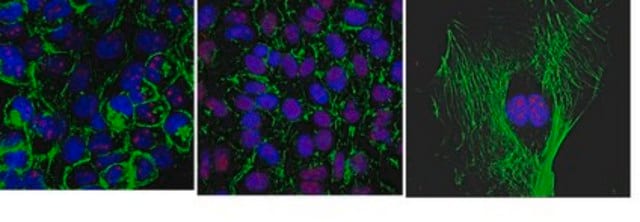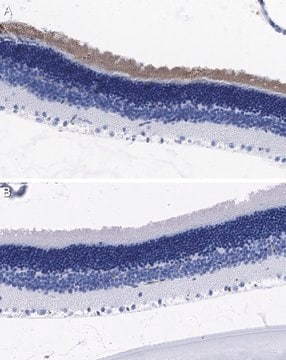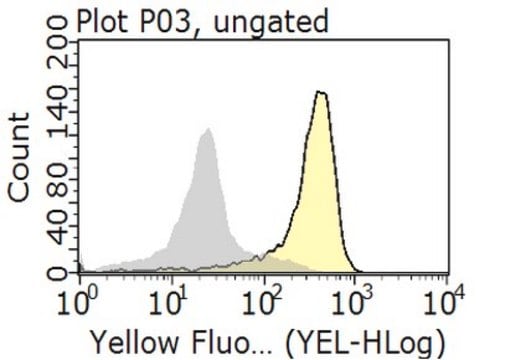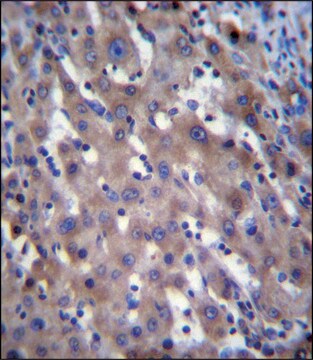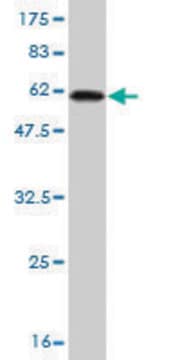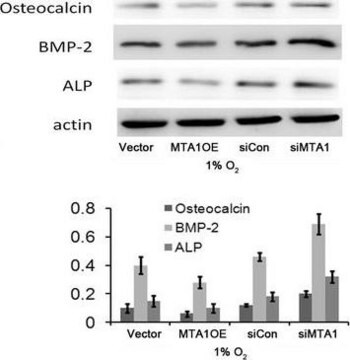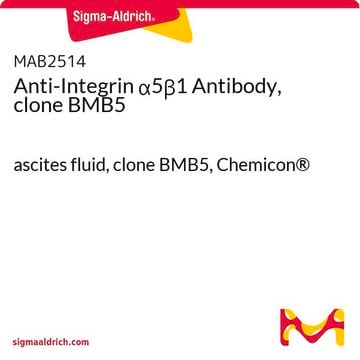MABN282
Anti-CNGB1 Antibody, clone 5A5.1
clone 5A5.1, 1 mg/mL, from mouse
Synonyme(s) :
Cyclic nucleotide-gated cation channel beta-1, Cyclic nucleotide-gated cation channel 4, CNG channel 4, CNG-4, CNG4, Cyclic nucleotide-gated cation channel gamma, Cyclic nucleotide-gated cation channel modulatory subunit, Cyclic nucleotide-gated channel
About This Item
Produits recommandés
Source biologique
mouse
Niveau de qualité
Forme d'anticorps
purified immunoglobulin
Type de produit anticorps
primary antibodies
Clone
5A5.1, monoclonal
Espèces réactives
human
Concentration
1 mg/mL
Technique(s)
western blot: suitable
Isotype
IgG1κ
Numéro d'accès NCBI
Numéro d'accès UniProt
Conditions d'expédition
wet ice
Modification post-traductionnelle de la cible
unmodified
Informations sur le gène
human ... CNGB1(1258)
Description générale
Immunogène
Application
Neuroscience
Developmental Signaling
Qualité
Western Blotting Analysis: 1.0 µg/mL of this antibody detected CNGB1 in 10 µg of Y79 cell lysate.
Description de la cible
Forme physique
Stockage et stabilité
Clause de non-responsabilité
Vous ne trouvez pas le bon produit ?
Essayez notre Outil de sélection de produits.
Code de la classe de stockage
12 - Non Combustible Liquids
Classe de danger pour l'eau (WGK)
WGK 1
Point d'éclair (°F)
Not applicable
Point d'éclair (°C)
Not applicable
Certificats d'analyse (COA)
Recherchez un Certificats d'analyse (COA) en saisissant le numéro de lot du produit. Les numéros de lot figurent sur l'étiquette du produit après les mots "Lot" ou "Batch".
Déjà en possession de ce produit ?
Retrouvez la documentation relative aux produits que vous avez récemment achetés dans la Bibliothèque de documents.
Notre équipe de scientifiques dispose d'une expérience dans tous les secteurs de la recherche, notamment en sciences de la vie, science des matériaux, synthèse chimique, chromatographie, analyse et dans de nombreux autres domaines..
Contacter notre Service technique